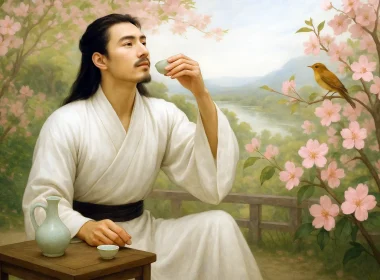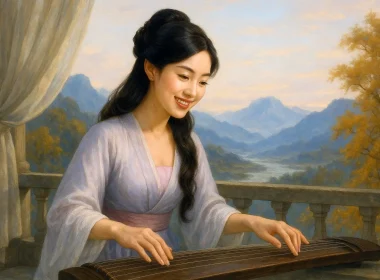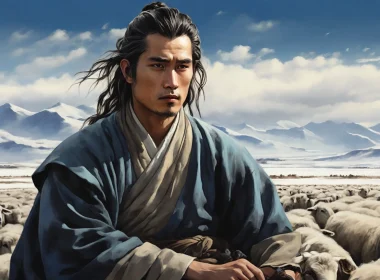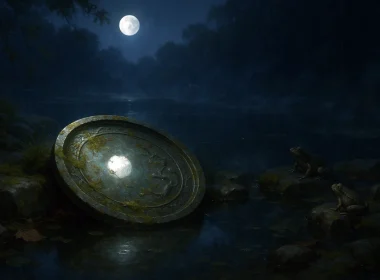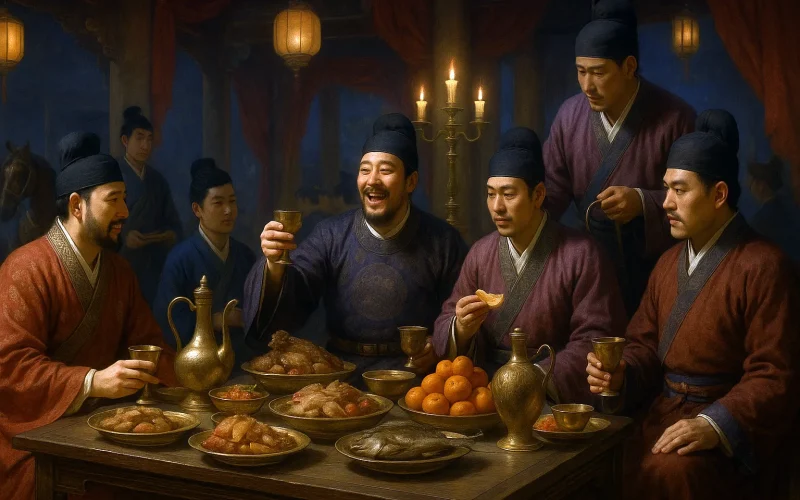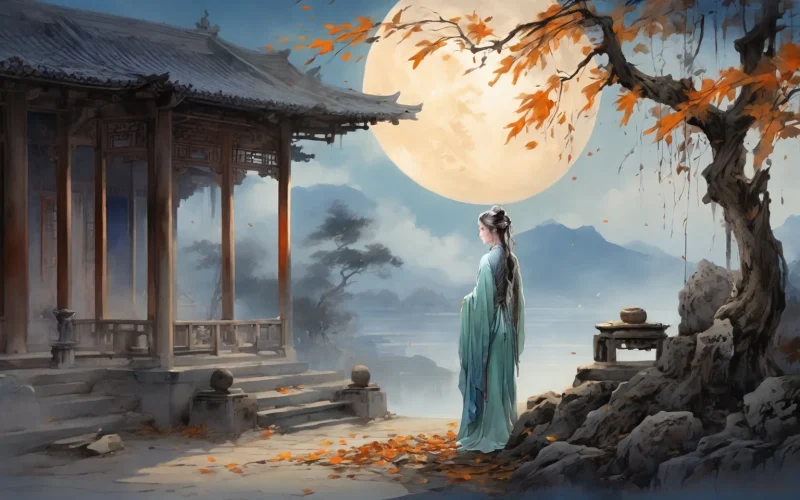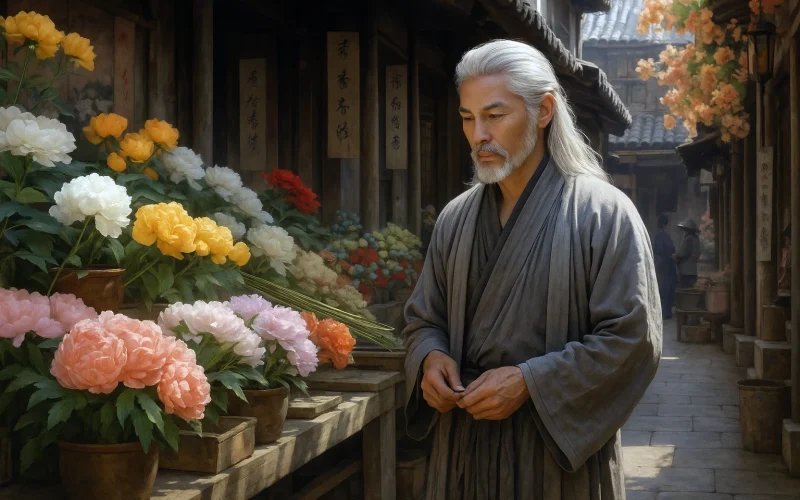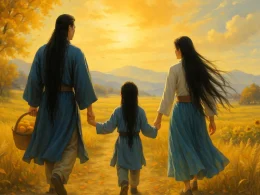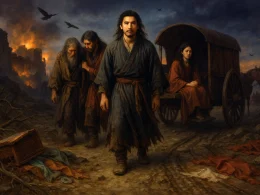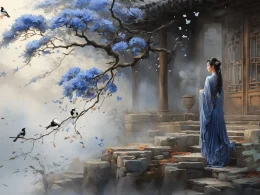The road is overwhelmed with their pride,
Saddled steeds brighten the roadside.
How proud these officers appear
For they are eunuchs without fear!
They wear official tassels red
And violet ribbon round the head.
To feast in the army they're proud,
Their horses run as light as cloud.
They drink and eat, wine cup in hand,
Delicious food from sea and land.
The oranges come from the lakeside;
The fish from Heaven's Pool well fried.
Full fed, they set their heart at ease;
Drunken, they would do as they please.
This year in the south the drought rages;
Men eat human flesh like savages.
Original Poem:
「轻肥」
白居易
意气骄满路,鞍马光照尘。
借问何为者,人称是内臣。
朱绂皆大夫,紫绶或将军。
夸赴军中宴,走马去如云。
樽罍溢九酝,水陆罗八珍。
果擘洞庭橘,脍切天池鳞。
食饱心自若,酒酣气益振。
是岁江南旱,衢州人食人。
Interpretation:
During the mid-Tang period, eunuchs wielded immense power, controlling state affairs and even manipulating imperial succession. As a Left Remonstrator, Bai Juyi was highly politically aware. This poem, composed in 809 during the fourth year of Emperor Xianzong’s Yuanhe reign, critiques the extravagant lifestyle of eunuchs and the resulting social injustices. The title, "Light and Excess," originates from The Analects, symbolizing the poet's satirical condemnation of their opulent indulgence.
First Couplet: “意气骄满路,鞍马光照尘。借问何为者,人称是内臣。”
(They exude arrogance, filling the streets with their presence, their horses and saddles gleaming brightly, reflecting even the dust. Curious passersby ask, "Who are they?" and the answer comes: "They are court eunuchs.")
The poet portrays the eunuchs’ arrogant demeanor and ostentatious displays, symbolized by the dazzling trappings of their mounts. This imagery emphasizes their unchecked power and prompts reflection on the roots of their extravagance.
Second Couplet: “朱绂皆大夫,紫绶或将军。夸赴军中宴,走马去如云。”
(Adorned in the scarlet sashes of senior officials and the purple cords of generals, they boast as they rush to military banquets, galloping like clouds.)
This couplet reveals the eunuchs’ overreach, extending from courtly power to military authority. The phrase “like clouds” captures their overwhelming presence, while their haste to revel underscores their indulgent priorities.
Third Couplet: “樽罍溢九酝,水陆罗八珍。果擘洞庭橘,脍切天池鳞。”
(Their goblets overflow with exquisite wine, their tables laden with delicacies from land and sea. They peel mandarins from Dongting Lake and savor sliced fish from Heavenly Pond.)
The sumptuous banquet illustrates the eunuchs’ extravagant consumption, highlighting their wasteful enjoyment of rare resources. This opulence underscores their disregard for societal hardships and foreshadows the poem’s critical turn.
Fourth Couplet: “食饱心自若,酒酣气益振。是岁江南旱,衢州人食人。”
(Content after feasting and emboldened by drink, they revel with ease and vigor. Yet that same year, Jiangnan suffered a severe drought, and in Quzhou, people resorted to cannibalism.)
The juxtaposition of the eunuchs’ revelry with the suffering of the Jiangnan populace creates a stark contrast. The poet’s matter-of-fact tone intensifies the moral outrage, as the extravagance of the powerful directly contrasts with the dire plight of the common people.
Writing Techniques:
- Contrast: The poem juxtaposes the eunuchs’ indulgence with the desperate suffering of the famine-stricken, starkly highlighting societal injustices.
- Vivid Imagery: The detailed descriptions of luxury and destitution bring both scenes to life, emphasizing the disparities.
- Subtle Criticism: Rather than overt condemnation, the poem allows the juxtaposed scenes to speak for themselves, leaving the reader to grasp the severity of the societal imbalance.
Overall Analysis:
This poem masterfully employs vivid contrasts and subtle critique to expose the eunuchs’ hedonistic lifestyles against the backdrop of widespread suffering. Each couplet presents a carefully crafted scene that magnifies the disparity between the ruling elite’s extravagance and the people’s misery. By placing these realities side by side, Bai Juyi offers a poignant indictment of political corruption and societal inequality. His restrained tone amplifies the impact, turning the poem into a searing commentary on the Tang dynasty’s governance.
Insights:
Through its sharp contrasts and understated critique, this poem reveals the devastating consequences of unchecked power and resource inequality. Bai Juyi’s refusal to directly censure the eunuchs invites the reader to confront these injustices through their own judgment. It reminds us that societal corruption and indifference to the suffering of the vulnerable lead to profound societal decay. Literature, as demonstrated here, plays a crucial role in exposing and challenging such inequities.
Poem translator:
Xu Yuan-chong (许渊冲)
About the poet:
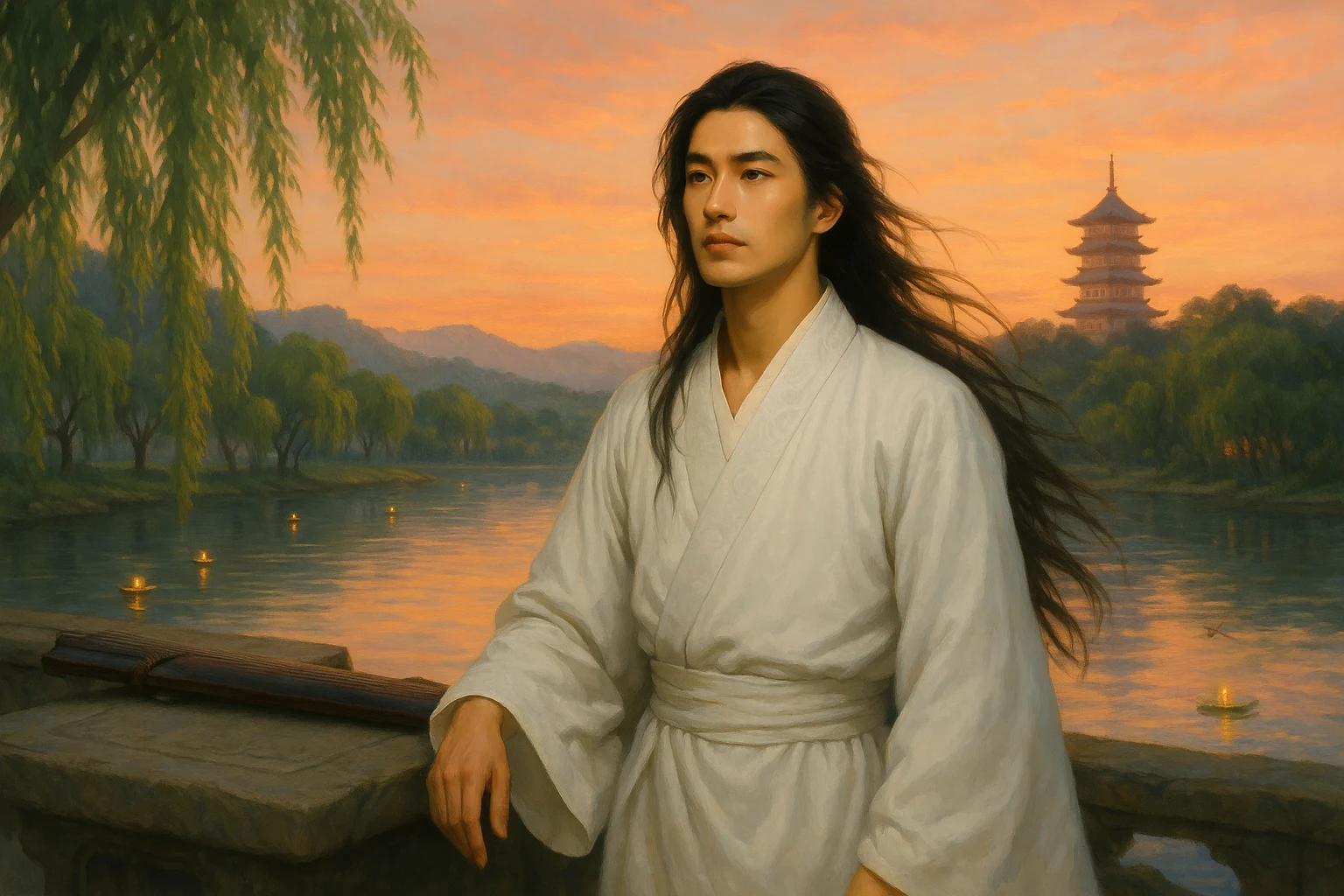
Bai Juyi (白居易), 772-846 AD, was originally from Taiyuan, then moved to Weinan in Shaanxi. Bai Juyi was the most prolific poet of the Tang Dynasty, with poems in the categories of satirical oracles, idleness, sentimentality, and miscellaneous rhythms, and the most influential poet after Li Bai Du Fu.


